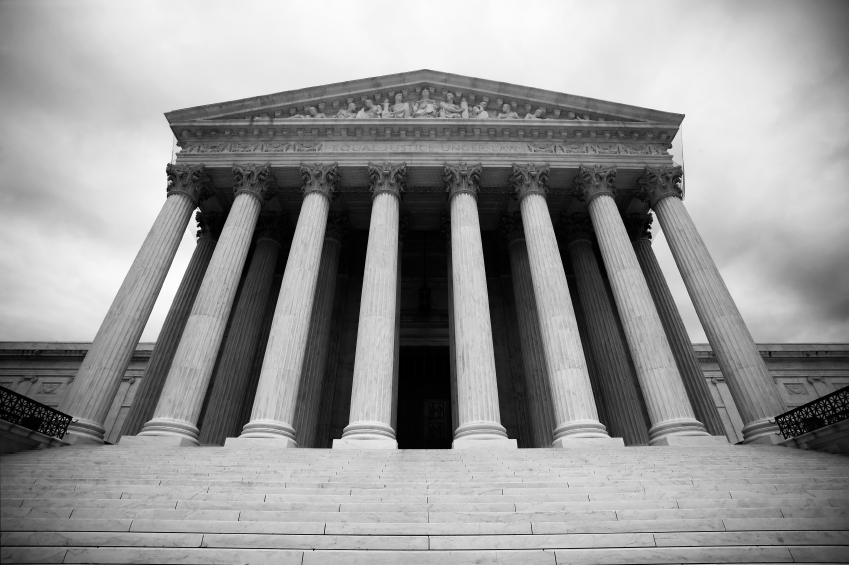
About This Blog
Presented by Hodgson Russ, the Whistleblower Blog is written by a team of lawyers experienced in successfully guiding both whistleblowers and companies accused by whistleblowers of wrongdoing through the False Claims Act process.
Stay Connected
Showing 10 posts in Practice and Procedure.
DOJ’s $678 Million Novartis Settlement for False Claims Act and Anti-Kickback Statute Violations—Changing Big Pharma’s Expectations for Compliance Programs
Roopa Chakkappan authored an article titled, "DOJ’s $678 Million Novartis Settlement for False Claims Act and Anti-Kickback Statute Violations—Changing Big Pharma’s Expectations for Compliance Programs," which was posted on the American Health Law Association's (AHLA) website.
Government Fraud Statistics Demonstrate the Enduring Utility of False Claims Act Litigation
The U.S. Department of Justice, Civil Division has published a substantial amount of data on the historical success of whistleblower cases and investigations. The statistics show that whistleblower litigation under the False Claims Act (often referred to as “quit tam” litigation) continues to be the government’s primary weapon in combating fraud.
As COVID-19 Strangles State Revenues, Some Legislatures Move to Ax the Tax Bar
Over its 200-year history, the federal False Claims Act (“FCA”) has saved the federal government billions of dollars in false claims for payment. But one type of false claim remains off limits in federal courts. A provision of the federal FCA known as the “tax bar” prohibits suits based on failure to pay federal taxes. See 31 U.S.C. § 3729(d). Whistleblowers who uncover federal tax fraud are limited to the Internal Revenue Service’s whistleblower program.
New York Expands Healthcare Worker Whistleblower Protections
On June 17, 2020, Governor Cuomo signed into law an amendment to the New York healthcare whistleblower law to create a new protected category, “improper quality of workplace safety,” and to expand protected channels to include news and social media outlets for reporting violations of improper quality of patient care or workplace safety. Under the new amendment, healthcare employers cannot take retaliatory action because an employee complains to the press or on social media about workplace conditions that significantly threaten employee health.
Borrower Beware: Prepare Now to Defend your Company’s Paycheck Protection Program (PPP) Loan from SBA Review or a Possible False Claims Act or Criminal Investigation
When the Coronavirus Aid, Relief, and Economic Security Act (CARES) was adopted on March 27, 2020, businesses welcomed the prospect of receiving COVID-19 financial relief through the Paycheck Protection Program (PPP). The PPP was layered atop the SBA’s existing Section 7(a) loan program, through which the federal government guarantees loans issued by qualified lenders to eligible business borrowers. The PPP program temporarily relaxed several criteria for obtaining an SBA loan, greatly expanding the availability of the lending program to a wider range of businesses. While clearly broader, the criteria for eligibility and the implications of the “necessity” certification weren’t quite so clearly defined, and left open many unanswered questions. But the prospect of “free money” by way of loan “forgiveness” induced countless businesses to submit loan applications at the earliest opportunity, beginning in early April 2020, despite the uncertainties.
Tenth Circuit Affirms Summary Judgment Reinforcing Escobar’s Materiality Requirements
On February 7, 2020, the Tenth Circuit affirmed a district court’s decision to grant summary judgment in favor of the defendant hospital. See United States ex rel Janssen v. Lawrence Memorial Hospital, __ F.3d __ (10th Cir. 2020). In doing so, the Tenth Circuit reinforced the rigorous materiality standard set forth in the Supreme Court’s 2016 Escobar decision.
Extrapolation Puts Big Data to Work for the Little Guy
Large frauds can generate hundreds of thousands of false claims for payment. The whistleblowers who uncover such frauds rarely have proof of every single false claim. Instead, they will usually have evidence of the overarching scheme—from emails, company memos, or conversations with insiders—along with some examples of the false claims that the scheme has generated. Now more than ever, that could be enough to win, as long as the whistleblower and their lawyers know how to use inferential statistics to their advantage.
DOJ Now Requires Certain Factors Be Met Before Pursuing Off-Label Cases
Over the years, the Department of Justice has vigorously pursued off-label sales of pharmaceuticals by some of the largest pharma companies in the world. By statute, pharma companies cannot market a product “off-label,” while a physician may prescribe off-label, if he or she believes a particular medicine is effective. This rule created a tension between pharma and physicians.
SCOTUS Finds that Violating FCA’s Seal Requirement Does Not Mandate Dismissal
The Supreme Court, in a unanimous decision, ruled in State Farm Fire & Cas. Co. v. United States ex rel. Rigsby et al., 580 U.S. ___ (2016) that a seal violation does not mandate dismissal of a relator’s complaint.
United States Supreme Court to Determine the Viability of the “Implied Certification” Theory of Legal Falsity under the False Claims Act
 In the coming months, the Supreme Court will render a landmark decision and determine the viability of the “implied certification” theory of legal falsity under the False Claims Act. The Supreme Court recently heard oral argument in this landmark case where the relators claim the defendant, Universal Health Services, presented false claims for payment under the “implied certification” theory. The case is before the Supreme Court on appeal from the First Circuit’s decision in United States ex rel. Escobar v. Universal Health Services, 780 F.3d 504 (1st Cir. 2015).
In the coming months, the Supreme Court will render a landmark decision and determine the viability of the “implied certification” theory of legal falsity under the False Claims Act. The Supreme Court recently heard oral argument in this landmark case where the relators claim the defendant, Universal Health Services, presented false claims for payment under the “implied certification” theory. The case is before the Supreme Court on appeal from the First Circuit’s decision in United States ex rel. Escobar v. Universal Health Services, 780 F.3d 504 (1st Cir. 2015).





